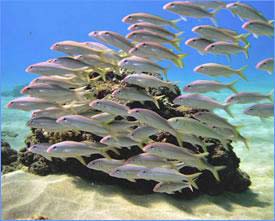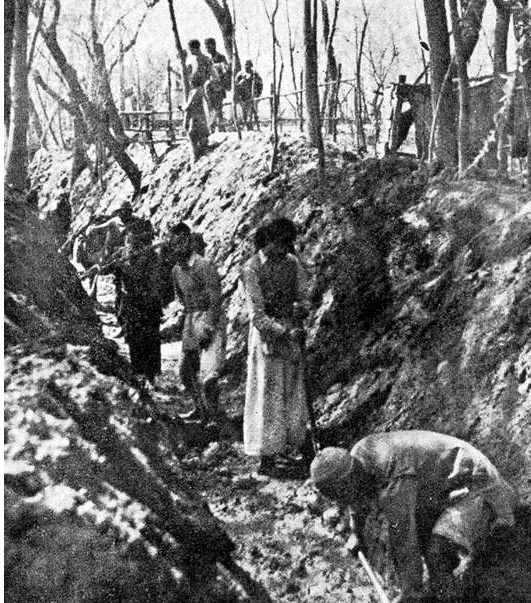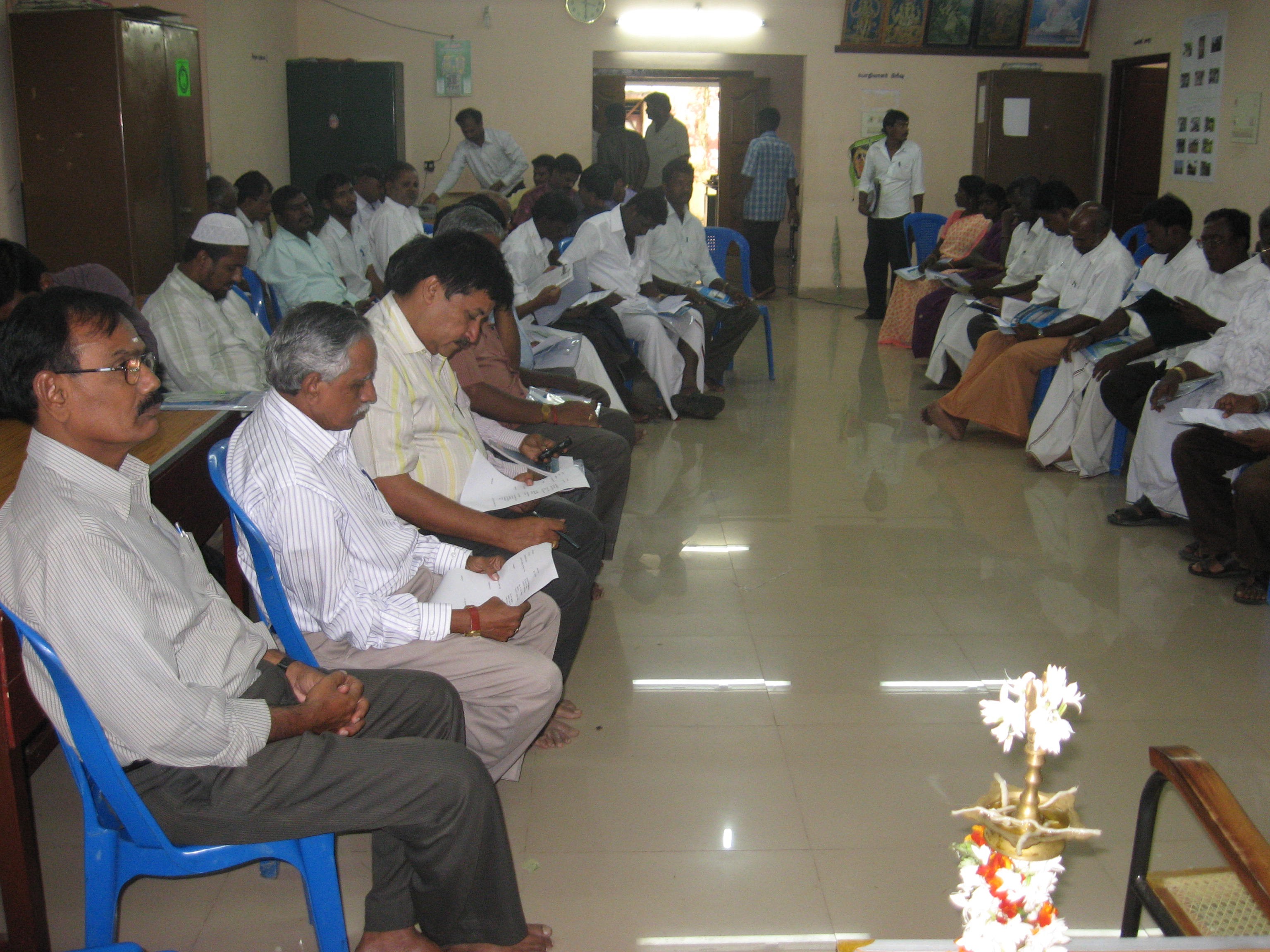Water Management
Fishery statistics – A manual by Ministry of Statistics and Programme Implementation
Posted on 11 Dec, 2011 10:08 AM It has a ready to use reference guide on methodological aspects of data (metadata) based on harmonized concepts and methodologies that facilitate international comparison and help in aggregation of statistics to derive meaningful conclusions. The adoption of the methodology suggested in this manual will go a long way in facilitating data aggregation and data comparison both at intra-regional levels, including international levels.
It has a ready to use reference guide on methodological aspects of data (metadata) based on harmonized concepts and methodologies that facilitate international comparison and help in aggregation of statistics to derive meaningful conclusions. The adoption of the methodology suggested in this manual will go a long way in facilitating data aggregation and data comparison both at intra-regional levels, including international levels.
The section on both marine and inland fisheries consists of four chapters and appendices. Chapter I highlights the significance of the sector, need for statistical standards and development of statistical system of the sector. Concepts and definitions are placed in Chapter II. Chapter III presents sources of data and details of methodology being adopted for generating these data. Chapter IV conveys the suggestion for ensuring quality standards. Lastly, appendices include estimation methods, forms and schedules and major resources available in the Indian waters.
India Water Week 2012, National Water Development Agency, April 10-12, 2012, New Delhi
Posted on 11 Dec, 2011 09:29 AMOrganizers: National Water Development Agency
Venue: Vigyan Bhavan, Maulana Azad Road, New Delhi

Description:
Water is the prime input to the growth and prosperity of the nation. Keeping in view the vital role of water in all aspects of life and also in assuring sustained development of economy, Ministry of Water Resources, Government of India have endeavored to celebrate India Water Week on an annual basis to provide a forum for national and international level dialogue for the policy makers as well as technical and socio-economic area workers in the sector as well as the society in general for generating innovative ideas and recognizing the works of significance by the individuals and organizers. As a part of the celebrations, a multi-disciplinary conference, a technology-cum-public awareness exhibition and study tours have been planned. All interested are welcome for joining hands with the Ministry of Water Resources for making this week a sustained success. This year, the first event will be organised between 10th to 14th April 2012 at New Delhi.
Comparative management performance of government and farmer managed irrigation systems in Kashmir
Posted on 04 Dec, 2011 11:49 AMKashmir was originally home to an elaborate network of farmer owned and managed canal based irrigation systems. Gradually, with the increase in planned development, several irrigation canals were taken under the control of the irrigation department. This paper compares the management of irrigation systems by farmers and government.

Ajunhi kordech aad (The wells are still dry) - An article in marathi - Anubhav magazine
Posted on 03 Dec, 2011 11:53 AMA large part of the state of Maharashtra continues to face acute scarcity of water due to scanty rainfall, which has had a serious impact on the livelihoods of people who live in these areas. This article "Ajuni Kordech Aad" meaning "The wells are still dry" published in the magazine Anubhav highlights the extreme hardships, lack of employment opportunities, forced migration due to negative impact on agriculture and livestock, and poverty and deprivation that people living in these areas have to face due to this water scarcity.
Thembe thembe samruddhi (Prosperity with every drop) - An article from the magazine Anubhav
Posted on 02 Dec, 2011 03:23 PMThis article in Marathi from the magazine Anubhav titled 'Thembe thembe samruddhi' meaning 'Prosperity with every drop' highlights the situation of acute scarcity of water in the state of Maharashtra and argues that this has been a barrier to the progress of the state leading to dire poverty and deprivation.
Encephalitis deaths in India - The same story of poverty, neglect, disaster and disease, how long will this continue ?
Posted on 02 Dec, 2011 10:15 AMGuest post by : Aarti Kelkar-Khambete
Initiation workshop in November 2011 - Study on exploring strategies for increasing per capita availability of water in Gingee town (Tamil Nadu) - DHAN Foundation
Posted on 01 Dec, 2011 11:56 AMThis workshop organised by the DHAN Foundation in the Gingee Town Panchayat (GTP) in Tamil Nadu on the 18th of November 2011, aimed at initiating a scientific study titled “Strategy for increasing per capita availability of water for Gingee town, Tamilnadu". Elected representatives of the town panchayat along with the general public and government officials participated in this workshop.

Harvest of rain - A CSE film
Posted on 28 Nov, 2011 04:13 PMThe camera wanders through the states of Uttar Pradesh, Rajasthan, Tamil Nadu and Maharashtra and records the profound traditional science of the people. “Harvest of Rain” analyses a wide variety of water harvesting systems as a function of differing ecological terrains
Bringing life back to Chilika lagoon in India
Posted on 28 Nov, 2011 10:34 AMContent and Media Courtesy: International Union for Conservation of Nature
This 116,500 hectare brackish lagoon separated from the Bay of Bengal by a long sandy ridge was added to the Ramsar List of Wetlands of International Importance in 1981.This was because the lagoon was facing serious degradation due to siltation and choking of the seawater inlet channel, resulting in the proliferation of invasive freshwater species, the decrease in fish productivity, and an overall loss of biodiversity [1].
Status of groundwater quality in India - Report of the survey conducted in metropolitan areas by the CPCB
Posted on 24 Nov, 2011 05:36 PMThe report recognises that most groundwater quality problems are anthropogenic in origin, caused by a combination of over-exploitation and infiltration of wastes. Inadequate infrastructure and resources mean that waste generated by cities and industrial areas is not properly collected, treated and disposed, thus leading to grondwater contamination.







